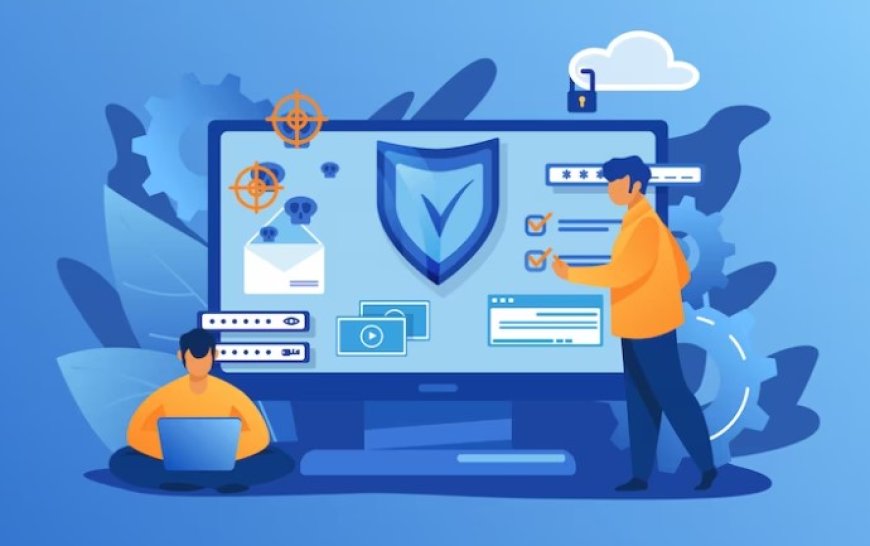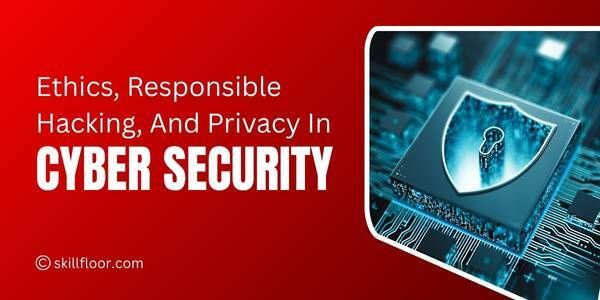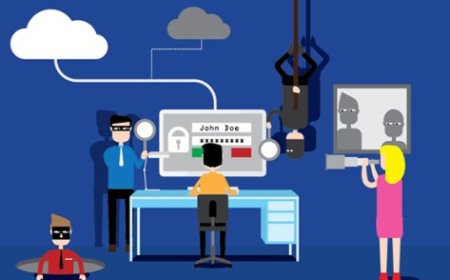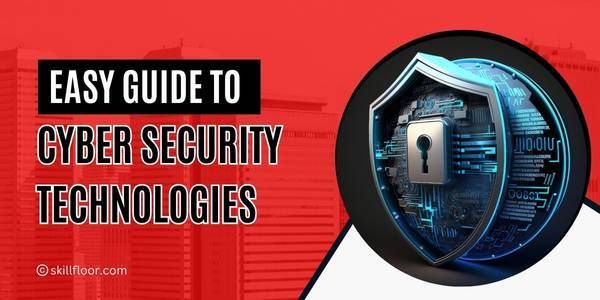Building a Career in Cybersecurity: Skills and Certifications
Discover the path to a rewarding career in cybersecurity. Explore essential skills and certifications to succeed in this dynamic field. Start your journey today.

In today's digital age, the demand for cybersecurity professionals is soaring. As society relies more heavily on technology, safeguarding sensitive data and digital infrastructure from cyber threats has become paramount. Establishing a successful career in cybersecurity is both financially rewarding and personally fulfilling, but it necessitates a strong foundation of skills and the acquisition of relevant certifications.
Cybersecurity
The cybersecurity landscape is an ever-evolving arena tasked with protecting digital systems, networks, and data from malicious threats and cyberattacks. In our interconnected world, where technology is pervasive, the significance of cybersecurity cannot be overstated. This landscape confronts a range of evolving cyber threats, from common malware and phishing schemes to highly sophisticated nation-state-sponsored breaches. Organizations and individuals alike are increasingly dependent on digital platforms, which escalates the potential consequences of security breaches, including financial losses, reputational harm, and the exposure of sensitive information.
To tackle these challenges, cybersecurity professionals must adopt a vigilant and proactive approach. They continuously scrutinize and reinforce systems for vulnerabilities, implement robust security measures, and formulate incident response strategies to mitigate the effects of potential breaches. The introduction of new technologies such as the Internet of Things (IoT), artificial intelligence, and cloud computing expands the attack surface, increasing the complexity of the cybersecurity landscape.
Furthermore, the cybersecurity landscape is influenced not just by cybercriminals but also by cybersecurity researchers and ethical hackers who work to uncover vulnerabilities and enhance defenses. The perpetual cat-and-mouse game between attackers and defenders underscores the need for security experts to remain ahead of evolving threats.
In this dynamic environment, cybersecurity professionals are pivotal in protecting digital assets and upholding the trust of users and customers. They must possess a diverse skill set, including knowledge of networking, operating systems, encryption, ethical hacking, and security tools, complemented by strong analytical and problem-solving abilities. Ongoing learning and staying updated on emerging threats and security trends are essential for effectively navigating and addressing the challenges posed by the cybersecurity landscape.
Proficiency in Networking and Operating Systems
A foundational skill for a thriving cybersecurity career is proficiency in networking and operating systems. Understanding networking protocols, infrastructure, and data flow aids in identifying vulnerabilities, while knowledge of operating systems like Windows, Linux, and macOS is vital for securing endpoints and defending against cyber threats. These skills serve as the bedrock of a cybersecurity professional's expertise in safeguarding digital assets and infrastructure against malicious attacks.
Cybersecurity Fundamentals
Cybersecurity fundamentals constitute the core principles and knowledge that underpin a robust cybersecurity practice. This encompasses understanding various cyber threats, attack vectors, and security measures necessary to protect digital systems and data. Proficiency in networking and operating systems is critical for efficiently identifying and addressing vulnerabilities. Familiarity with cybersecurity concepts such as risk management, access control, cryptography, and incident response is essential for building robust defense mechanisms. Moreover, ethical hacking and penetration testing skills empower cybersecurity professionals to assess and fortify an organization's security posture. Continuous learning, adaptability, and compliance with regulations ensure that professionals stay abreast of evolving cyber threats. Communication and collaboration skills are vital, enabling effective communication with both technical and non-technical stakeholders. By mastering these fundamentals, individuals can pursue a successful and rewarding career in the field of cybersecurity, protecting valuable digital assets from malicious attacks.
Ethical Hacking and Penetration Testing
Ethical hacking and penetration testing are indispensable components of cybersecurity. Ethical hackers simulate real-world cyber attacks on systems, networks, or applications to identify vulnerabilities before malicious hackers exploit them. Penetration testing assists organizations in assessing and strengthening their security defenses. Both practices are crucial for proactively safeguarding digital assets and mitigating potential threats.
Security Tools and Technologies
Security tools and technologies play a pivotal role in safeguarding digital assets and defending against cyber threats. These tools encompass a wide range of solutions designed to detect, prevent, and respond to security incidents. Firewalls serve as the first line of defense, monitoring and filtering network traffic to block unauthorized access. Intrusion Detection/Prevention Systems (IDS/IPS) detect and respond to suspicious activities, while antivirus software identifies and removes malware. Encryption tools protect sensitive data by converting it into unreadable code, ensuring confidentiality. Additionally, Security Information and Event Management (SIEM) tools aggregate and analyze logs from various systems, providing comprehensive insights into potential threats. Embracing these security tools and technologies is critical to fortifying an organization's defenses and mitigating ever-evolving cyber risks.
Security Certifications
Security certifications are industry-recognized credentials that validate an individual's knowledge and expertise in various aspects of cybersecurity. These certifications play a pivotal role in building a successful career in cybersecurity, demonstrating a professional's competency to employers and clients. Some highly regarded security certifications include CompTIA Security+ (covering fundamental security concepts), Certified Ethical Hacker (CEH, focusing on ethical hacking and penetration testing skills), Certified Information Systems Security Professional (CISSP, showcasing expertise in information security management), Certified Information Security Manager (CISM, emphasizing security governance and risk management), and Certified Information Systems Auditor (CISA, validating skills in auditing, control, and assurance). Earning these certifications not only enhances one's credibility but also keeps professionals updated with the latest security trends, making them valuable assets in the ever-evolving cybersecurity landscape.
Continuous Learning and Adaptability
Continuous learning and adaptability are essential traits for success in any field, but particularly in cybersecurity. The rapidly evolving nature of cyber threats and technologies demands a commitment to staying updated with the latest trends, tools, and techniques. Professionals who prioritize continuous learning through training, conferences, and hands-on experiences can effectively tackle emerging challenges and maintain a competitive edge. Being adaptable allows cybersecurity experts to respond to new threats, vulnerabilities, and organizational needs, ensuring they remain effective defenders in an ever-changing digital landscape.
Communication and Collaboration
Communication and collaboration are crucial skills in the field of cybersecurity. Cybersecurity professionals must effectively convey complex technical concepts to both technical and non-technical stakeholders. They also need to collaborate with teams to respond to security incidents, implement security measures, and cultivate a culture of security awareness. Strong communication and collaboration skills enable cybersecurity experts to work efficiently and ensure that security practices are seamlessly integrated throughout the organization.
Compliance and Regulations
Compliance and regulations hold significant weight in cybersecurity. Understanding relevant cybersecurity laws, industry standards, and data protection regulations is critical for organizations to meet legal requirements and protect sensitive information. Adherence to compliance measures helps maintain trust with customers, mitigates cyber risks, and prevents potential legal repercussions for data breaches or security incidents.
Building a Portfolio and Networking
Creating a robust portfolio and fostering a professional network are essential for a thriving cybersecurity career. A well-curated portfolio that showcases projects, certifications, and contributions demonstrates expertise and credibility to potential employers. Active participation in cybersecurity communities and networking events enables the formation of valuable connections, the acquisition of insights, and staying current with industry trends, thereby opening doors to new opportunities and professional growth.
Building a career in cybersecurity requires a diverse skill set, continuous learning, and a passion for safeguarding digital assets. By honing your technical abilities, obtaining industry-recognized certifications, and staying updated with the latest trends, you can position yourself as a sought-after cybersecurity professional. The ever-increasing importance of cybersecurity ensures that a career in this field is not only fulfilling but also one of the most crucial roles in today's digital landscape.



























































